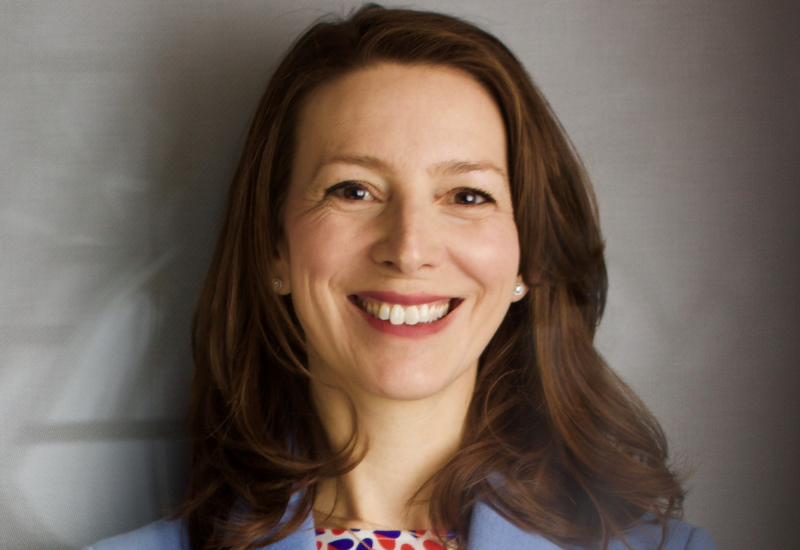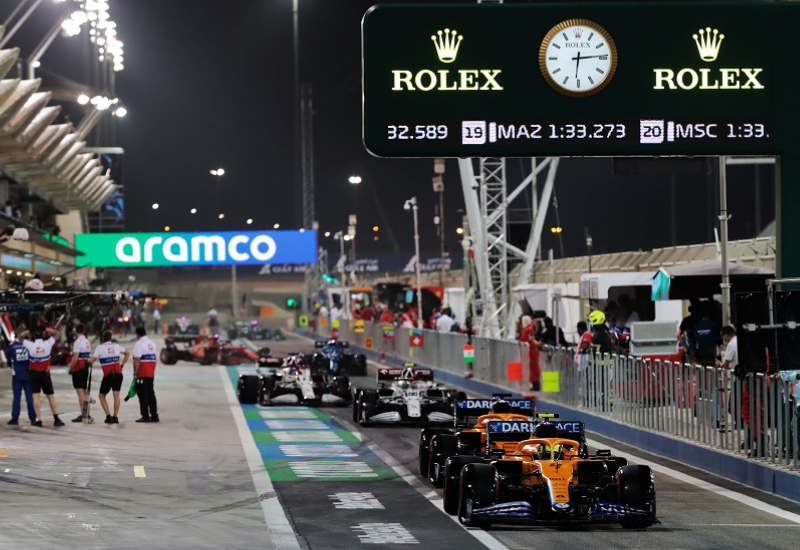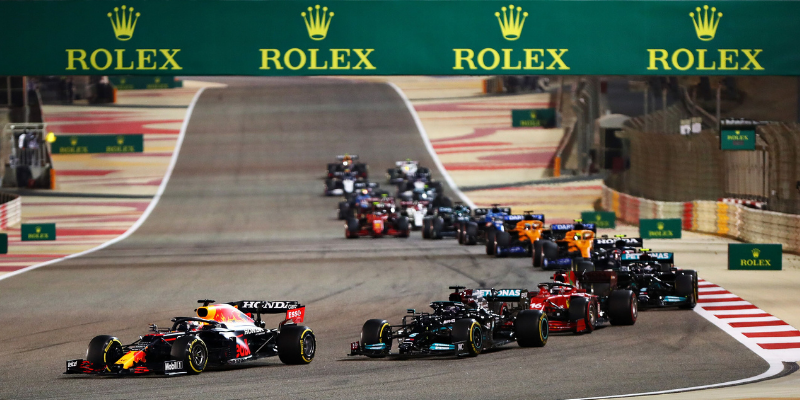Formula One (F1) is the world’s most prestigious motor racing competition.
In 2021, F1’s global footprint has spanned across 22 races and is now welcoming in a wave of new supporters who are engaging more.
As this year marks its 71st year, the global racing competition is aiming to further expand its global reach, something Chloe Targett-Adams, the Global Director of Race Promotion is leading the charge for.
Emirates Woman sat down with her to understand how she’s spearheading various projects and expanding its name on a large scale.
What inspired you to play this crucial role as the Global Director of Race Promotion for Formula One?
I’ve always aspired to work in the entertainment industry since a young age. My father who is a famous musician had toured the world with his work and this inspired me. I trained as a lawyer following university and had the opportunity to join Formula One in 2009 and then in 2012 to start working with our previous CEO and founder Bernie Ecclestone on race promotion. This then led to the incredible privilege of being able to take up the opportunity to move into my current role as Global Director of Race Promotion & and Hospitality.
With Formula One being regarded as one of the world’s most engaging sports, what are the main factors which contributed to this?
We are the world’s biggest global annual sporting event, and it is truly global as we’ll visit five different continents with 22 races in 2021 and 23 races in 2022; as well as having a grid of drivers representing four continents. It is the perfect mix of athleticism, technology, and engineering with live drama and entertainment in a way no other sports can match up to. We’re now bringing that to life through content and storytelling as we’ve never done before to enhance the experience for our hardcore fans, but also welcoming in a wave of new supporters who are engaging more. The sport has an illustrious history to be proud of, but the future is even more exciting as we look forward to a new era of F1 in 2022 with a new car and new regulations that will lead to more competitive racing.

How do you feel about holding such a prime position in a male-dominated sport?
It’s important that as a business we reflect on our fanbase which is a diverse mix of audience and workforce. As of February this year, out of 569 employees at F1, 38 per cent were female so we are making headway, but we know we need to do more and that’s why as part of our ‘We Race As One’ initiative, where we are looking at how we can increase opportunities for under-represented groups across all areas of our business and the sport. I’ve been fortunate enough to learn from other female colleagues of mine both within the company and the wider industry since joining Formula One. With women employees across various departments, be it engineering, marketing, legal or commercial, there are so many of them to look up to and learn from.
What were some of the key challenges that you faced amid the pandemic and how did you overcome them?
Our biggest challenge was that racing stopped overnight with the pandemic and with that our ability to function as a sport. We had to work hard as a team to adapt and innovate so we can deliver our sport to our fans even in a global pandemic. We delivered great virtual racing in 2020 during the initial lockdown phase while we worked hard on developing a calendar of races that we could deliver amongst the logistic complexities of travelling in COVID and we’ve developed robust and rigorous COVID protocols over the past year to enable us to race in different host countries safely, protecting and prioritising the safety of the communities we visit, and the F1 racing community. Since last July we’ve had 150,00 PCR tests with 124 positives, which is a rate of 0.08%, showing the strength of our protocols. We also had the challenge of ensuring our junior series F2 and F3 were able to race We as F1 delivered 17 races last year and since then we have learned and proven a lot; in 2021 we have delivered 14 races to date, of our 22-race calendar and we have welcomed fans back at the races also.
What have been the milestones in your career so far?
To date, qualifying as a lawyer, joining Formula One and then moving into a commercial business role as part of the senior leadership team of Formula 1. It’s been an incredible journey to date and I am excited to see what the future will bring.
What piece of advice would you have for those who wish to get into motorsport?
Explore and pursue every opportunity that may come your way – there are multiple career options in the motorsport industry and be open-minded to what career routes you may end up taking.

What does a typical race day look like for you?
There is no typical race day. The beauty of my role is that no two days are the same. There are a variety of clients who we meet to discuss the business side of things alongside our promoter and hospitality teams on the operational aspects of the event and our Paddock Club to experience products.
What innovations can we see in the pipeline for Formula One in the Middle East?
We know there is huge potential in the region for not only F1 but for the ten teams and all of the partners that are key stakeholders in the sport. There is a young and engaged audience in the region, which opens up a huge market for us to tap into through our ever-growing presence on social media. It’s a big year for us as we look forward to racing in Saudi for the first time ever, and our races in the Middle East are always big on events in the F1 calendar and we know there is increasing demand from fans in the region. We’ve been able to evolve our hospitality offering and make it localised for the Middle East to enhance the experience for visitors at our races, and we expect another exciting event when we come to Jeddah in December.
– For more on luxury lifestyle, news, fashion and beauty follow Emirates Woman on Facebook and Instagram
Images: Supplied











